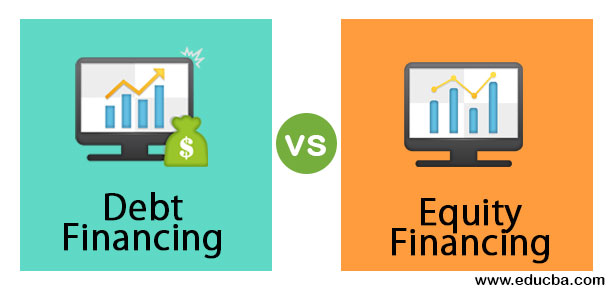Debt Financing vs. Equity Financing: An Overview
When financing a company, "cost" is the measurable cost of obtaining capital. With debt, this is the interest expense a company pays on its debt. With equity, the cost of capital refers to the claim on earnings provided to shareholders for their ownership stake in the business.

KEY TAKEAWAYS
When financing a company, "cost" is the measurable cost of obtaining capital.
With equity, the cost of capital refers to the claim on earnings provided to shareholders for their ownership stake in the business.
Provided a company is expected to perform well, debt financing can usually be obtained at a lower effective cost.
Read More: 5 WAYS TO IMPROVE YOUR CREDIT SCORE
Debt Financing
When a firm raises money for capital by selling debt instruments to investors, it is known as debt financing. In return for lending the money, the individuals or institutions become creditors and receive a promise that the principal and interest on the debt will be repaid on a regular schedule.
Equity Financing

Equity financing is the process of raising capital through the sale of shares in a company. With equity financing comes an ownership interest for shareholders. Equity financing may range from a few thousand dollars raised by an entrepreneur from a private investor to an initial public offering (IPO) on a stock exchange running into the billions.
If a company fails to generate enough cash, the fixed-cost nature of debt can prove too burdensome. This basic idea represents the risk associated with debt financing.
Example-
Provided a company is expected to perform well, you can usually obtain debt financing at a lower effective cost.
For example, if you run a small business and need $40,000 of financing, you can either take out a $40,000 bank loan at a 10 percent interest rate, or you can sell a 25 percent stake in your business to your neighbor for $40,000.
Suppose your business earns a $20,000 profit during the next year. If you took the bank loan, your interest expense (cost of debt financing) would be $4,000, leaving you with $16,000 in profit.
Conversely, had you used equity financing, you would have zero debt (and as a result, no interest expense), but would keep only 75 percent of your profit (the other 25 percent being owned by your neighbor). Therefore, your personal profit would only be $15,000, or (75% x $20,000)
From this example, you can see how it is less expensive for you, as the original shareholder of your company, to issue debt as opposed to equity. Taxes make the situation even better if you had debt since interest expense is deducted from earnings before income taxes are levied, thus acting as a tax shield (although we have ignored taxes in this example for the sake of simplicity).
Of course, the advantage of the fixed-interest nature of debt can also be a disadvantage. It presents a fixed expense, thus increasing a company's risk. Going back to our example, suppose your company only earned $5,000 during the next year. With debt financing, you would still have the same $4,000 of interest to pay, so you would be left with only $1,000 of profit ($5,000 - $4,000). With equity, you again have no interest expense, but only keep 75 percent of your profits, thus leaving you with $3,750 of profits (75% x $5,000).
However, if a company fails to generate enough cash, the fixed-cost nature of debt can prove too burdensome. This basic idea represents the risk associated with debt financing.
The Bottom Line
Companies are never totally certain what their earnings will amount to in the future (although they can make reasonable estimates). The more uncertain their future earnings, the more risk is presented. As a result, companies in very stable industries with consistent cash flows generally make heavier use of debt than companies in risky industries or companies who are very small and just beginning operations. New businesses with high uncertainty may have a difficult time obtaining debt financing and often finance their operations largely through equity. (For related reading, see "Should a Company Issue Debt or Equity?")
Compete Risk Free with $100,000 in Virtual Cash
Put your trading skills to the test with our FREE Stock Simulator. Compete with thousands of Investopedia traders and trade your way to the top! Submit trades in a virtual environment before you start risking your own money. Practice trading strategies so that when you're ready to enter the real market, you've had the practice you need. Try our Stock Simulator today >>



Comments
Post a Comment